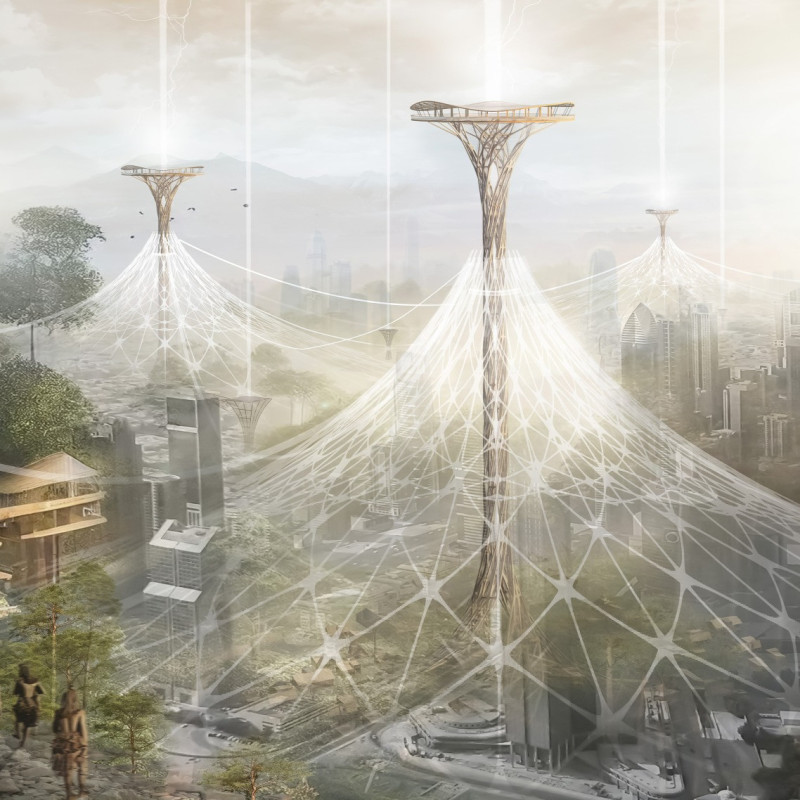5 key facts about this project
The project responds to the urgent need for ecological awareness in the face of rapid urbanization threatening rainforests, particularly in Papua, Indonesia. Designed as a tall lighthouse, it symbolizes the relationship between urban spaces and nature. The structure aims to educate people about environmental issues while reflecting the culture of the Korowai, an indigenous group known for their tree houses built in the rainforest.
Conceptual Framework
This design features a vertical layering system that imitates the natural stratification found in rainforest ecosystems. The forest canopy rises to over 130 feet, representing the thick network of leaves and branches typical of dense forests. This design choice not only adds complexity to the building's appearance but also emphasizes the connection between architectural forms and the natural environment.
Aesthetic and Structural Elements
The lighthouse is defined by shapes and forms that resemble trees, allowing it to integrate with the landscape. These organic designs help create a visual harmony with the surrounding flora. The project includes interconnected elements that mirror the relationships seen in nature, showcasing both the structural aspects of the lighthouse and the importance of ecological balance.
Cultural and Functional Integration
The influence of the Korowai culture is a key element of the design. It incorporates features from their traditional treehouse living, which protects them from the environment. This aspect of the project highlights sustainable practices based on indigenous knowledge and encourages a respectful connection between people and nature.
Elevated Interaction
The design's height not only offers views of the surrounding area but also engages city residents with the rainforest's beauty and vulnerability. This perspective allows people to consider the effects of urban growth on biodiversity and the environment.
The weathered surface treatment used for the lighthouse brings in textures reminiscent of the forest, enhancing the tactile relationship to the ecosystem while securing the structure within its natural surroundings.


















































